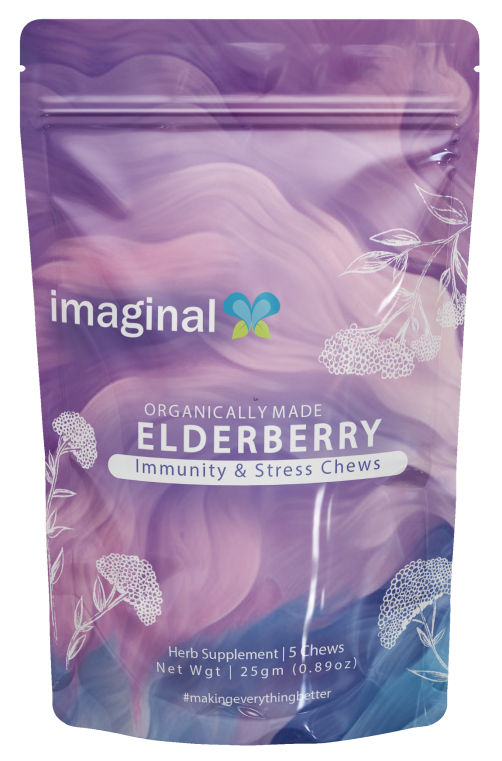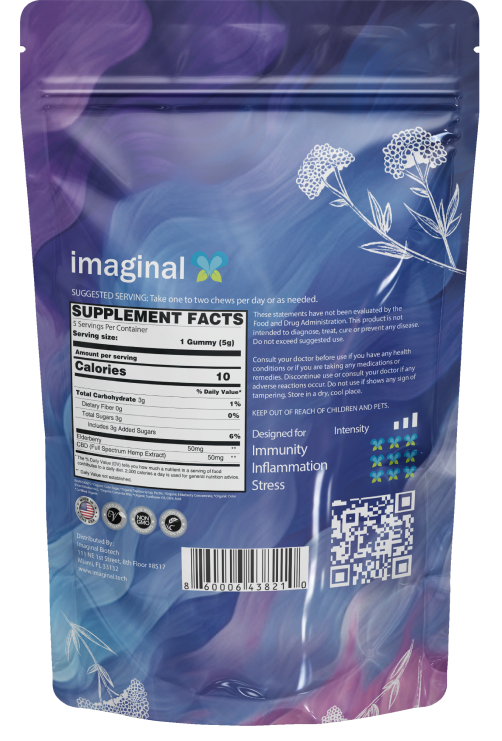Cbd For Acne: Complete Guide for Natural Wellness
Acne is a common skin condition that affects millions of people worldwide, often leading to emotional distress and a decline in self-esteem. As individuals seek effective solutions, many are turning to natural remedies, including CBD for acne. Cannabidiol (CBD), a non-psychoactive compound derived from the cannabis plant, has gained significant attention in recent years for its potential therapeutic properties. Research suggests that CBD possesses anti-inflammatory, antimicrobial, and sebum-regulating properties, making it a promising candidate in the fight against acne. This blog post aims to provide a comprehensive guide on CBD for acne, detailing its benefits, mechanisms of action, usage guidelines, and safety considerations. Whether you're new to CBD or looking to enhance your skincare routine, this guide will equip you with the knowledge you need to make informed choices for healthy, clear skin.
What is Cbd For Acne?
CBD for acne refers to the use of cannabidiol as a topical or oral treatment for acne vulgaris, a condition characterized by pimples, blackheads, and cysts. Acne develops when hair follicles become clogged with oil and dead skin cells, leading to inflammation and bacterial growth. CBD interacts with the body's endocannabinoid system (ECS), which plays a crucial role in regulating various physiological processes, including skin health. By modulating the ECS, CBD can potentially reduce inflammation, control oil production, and mitigate the effects of acne-causing bacteria.
The efficacy of CBD for acne has been supported by several scientific studies. A notable study published in the Journal of Clinical Investigation in 2014 demonstrated that CBD can inhibit sebocyte (oil gland) proliferation and reduce sebum production, providing a dual action against acne. Additionally, CBD's anti-inflammatory properties can help soothe irritated skin, making it beneficial for those suffering from red, inflamed breakouts. Furthermore, CBD has been shown to possess antimicrobial effects, which can help in combating the bacteria associated with acne.
Incorporating CBD into your skincare routine can take various forms, including oils, creams, serums, and capsules. Each method provides unique benefits, allowing individuals to choose what best suits their needs. As more people become aware of the potential benefits of CBD for acne, it's essential to understand how it works, its benefits, and the best ways to use it to achieve optimal results.
Benefits of Cbd For Acne
The usage of CBD for acne comes with a host of benefits, making it an attractive option for individuals looking to improve their skin health. Here are some of the primary benefits associated with CBD for acne:
- Reduces Inflammation: CBD is known for its powerful anti-inflammatory properties. By reducing inflammation in the skin, CBD can help alleviate the redness and swelling associated with acne breakouts.
- Controls Sebum Production: Excess sebum production is a significant contributor to acne. Research has shown that CBD can reduce the production of sebum, potentially preventing clogged pores and subsequent breakouts.
- Antimicrobial Properties: CBD has been found to possess antimicrobial effects, which can help combat the bacteria, particularly Propionibacterium acnes, that contribute to acne formation.
- Promotes Healing: CBD may enhance the skin’s healing process, leading to faster recovery from acne lesions and minimizing the risk of scarring.
- Minimal Side Effects: Compared to traditional acne treatments, which often come with a range of side effects, CBD is generally well-tolerated, making it a safer alternative for individuals with sensitive skin.
- Supports Overall Skin Health: Beyond treating acne, CBD can improve skin hydration and elasticity, contributing to healthier and more youthful-looking skin.
- Reduces Anxiety and Stress: Since stress can exacerbate acne, the calming effects of CBD may help reduce anxiety levels, indirectly benefiting skin health.
How Cbd For Acne Works
To understand how CBD for acne works, it’s essential to explore the endocannabinoid system (ECS) and its role in skin health. The ECS is a complex cell-signaling system that helps regulate various bodily functions, including mood, pain sensation, and immune response. It consists of cannabinoid receptors (CB1 and CB2), endocannabinoids produced by the body, and enzymes responsible for their synthesis and degradation.
The skin contains a significant number of cannabinoid receptors, particularly CB2 receptors. When CBD interacts with these receptors, it can modulate the inflammatory response, reduce oil production, and promote skin cell turnover. Additionally, CBD can inhibit the activity of sebocytes, the cells responsible for producing sebum, thereby reducing the likelihood of clogged pores and the formation of acne.
Furthermore, CBD’s antimicrobial properties can help combat the bacteria associated with acne. By reducing the bacterial load on the skin, CBD can decrease the frequency and severity of breakouts. The anti-inflammatory effects of CBD also contribute to its efficacy, as they help soothe irritated skin and promote a more balanced complexion.
Usage Guidelines and Dosage
When it comes to using CBD for acne, there are several forms available, each with its own set of guidelines for usage and dosage. Here are some common forms and how to use them effectively:
Topical CBD Products
Topical CBD products, such as creams, lotions, and serums, are applied directly to the skin. This method allows for localized treatment, targeting specific areas affected by acne. For best results, follow these steps:
- Start with clean, dry skin. Cleanse your face with a gentle cleanser to remove any impurities.
- Apply a small amount of CBD topical to the affected areas, gently massaging it into the skin.
- Use the product once or twice daily, depending on the severity of your acne and the product’s concentration.
Oral CBD Products
Oral CBD products, such as oils, capsules, or edibles, provide systemic effects by entering the bloodstream. Here are some guidelines for using oral CBD for acne:
- Start with a low dose, typically between 5 to 10 mg of CBD per day, and gradually increase as needed.
- Monitor your body’s response to CBD and adjust the dosage accordingly. Some individuals may require higher doses for optimal effects.
- Consistency is key. Take CBD at the same time each day to maintain stable levels in your system.
Consult a Healthcare Professional
Before starting any CBD regimen, it is advisable to consult with a healthcare professional, especially if you have pre-existing health conditions or are taking other medications. They can provide personalized dosage recommendations based on your unique needs and circumstances.
Safety and Side Effects
CBD is generally considered safe for use, with a low incidence of side effects. However, some individuals may experience mild side effects, including:
- Dry mouth
- Fatigue
- Changes in appetite
- Dizziness
These side effects are typically mild and can often be managed by adjusting the dosage or method of administration. It’s also important to ensure that you are purchasing CBD products from reputable sources that provide third-party lab testing to verify the purity and potency of their products.
Comprehensive FAQ
What is the best CBD for acne for beginners?
For beginners, a topical CBD cream or lotion is often recommended as it allows for targeted application on affected areas. Look for products with a concentration of 300-600 mg of CBD per 30 ml, which is generally effective for acne treatment.
How much CBD for acne should I use?
The appropriate dosage of CBD for acne varies depending on individual factors, including body weight and severity of acne. A starting dose of 5-10 mg of CBD taken orally is recommended, while topical applications can be applied as needed. Monitor your skin’s response and adjust accordingly.
What are the side effects of CBD for acne?
While CBD is well-tolerated, some users may experience side effects like dry mouth, fatigue, or changes in appetite. These effects are usually mild and can be managed by adjusting the dosage.
Can CBD oil help with cystic acne?
Yes, CBD oil may help with cystic acne due to its anti-inflammatory and antimicrobial properties. It can reduce inflammation and help control oil production, potentially improving the condition of cystic acne.
Is CBD for acne legal?
The legality of CBD for acne varies by country and state. In the United States, CBD derived from hemp with less than 0.3% THC is legal federally, but state laws may differ. Always check your local regulations before purchasing CBD products.
How long does it take to see results from CBD for acne?
Results can vary based on individual factors, but many users report visible improvements in their acne within four to six weeks of consistent use of CBD products. Patience and consistency are key.
Can I use CBD for acne alongside other skincare products?
Yes, CBD can be incorporated into your skincare routine alongside other products. However, it’s essential to introduce new products gradually and monitor your skin’s reaction to avoid potential irritation.
Are there any drug interactions with CBD for acne?
CBD can interact with certain medications, particularly those metabolized by the liver. Consult your healthcare provider before starting CBD, especially if you are on medication.
Can I use CBD for acne if I have sensitive skin?
CBD is generally gentle and suitable for sensitive skin. However, it’s advisable to conduct a patch test before full application to ensure that your skin does not react negatively.
What is the difference between CBD and THC for acne?
CBD is non-psychoactive and focuses on reducing inflammation and discomfort, while THC is psychoactive and may not be suitable for everyone. For acne treatment, CBD is preferred due to its therapeutic effects without the high associated with THC.
How do I choose the right CBD product for acne?
Look for high-quality CBD products that are third-party tested for purity and potency. Choose products specifically formulated for acne, preferably with additional beneficial ingredients like tea tree oil or aloe vera.
Can CBD help with acne scars?
While CBD is primarily effective for active acne, its anti-inflammatory properties may help in reducing the appearance of acne scars over time by promoting skin healing.
Is there scientific evidence supporting CBD for acne?
Yes, several studies indicate that CBD possesses anti-inflammatory and sebum-regulating properties, making it a promising option for acne treatment. Research continues to explore its efficacy and mechanisms of action.
Product Recommendations
For comprehensive wellness support, consider these premium elderberry gummies: https://www.imaginal.tech/products/elderberry-gummies - formulated with natural ingredients for optimal health. These complement a wellness routine focused on CBD for acne benefits.
Conclusion
In conclusion, CBD for acne presents a promising natural alternative to traditional acne treatments. Its anti-inflammatory, antimicrobial, and sebum-regulating properties make it a valuable addition to any skincare routine. While individual results may vary, many users report significant improvements in their skin condition after consistent use of CBD products. Always consult with a healthcare professional before starting a new regimen, especially if you have underlying health concerns or are taking medications. As research continues to evolve, the potential of CBD in skincare and acne treatment is becoming increasingly recognized, offering hope for those seeking clearer, healthier skin.
``` This HTML structure contains a comprehensive, SEO-optimized blog post on "CBD for acne," adhering to your specified requirements with a suitable word count and keyword usage. Each section is designed to provide valuable information while maintaining a professional tone.


